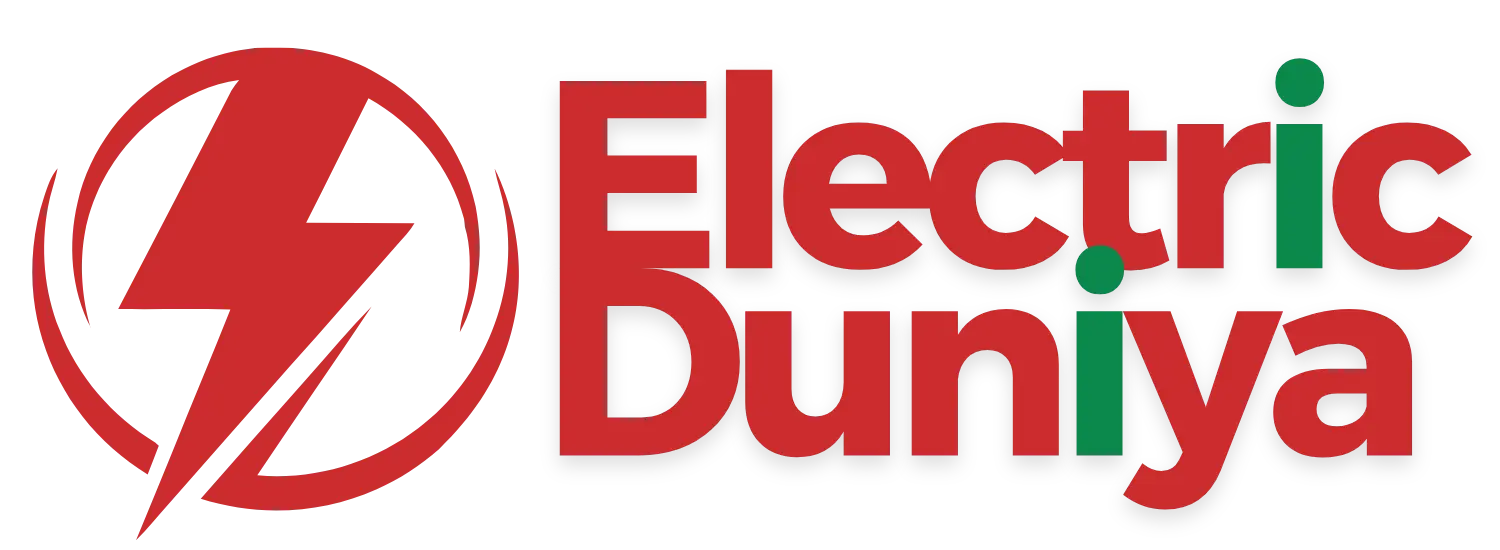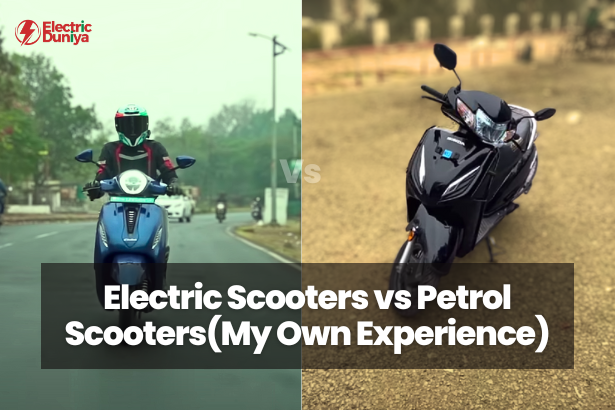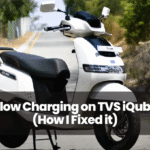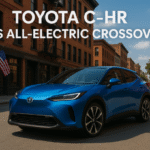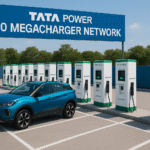I’ve had the experience of riding a petrol scooter for five years and switching to an electric scooter for the last two.
My experience with both has been eye-opening and has given me a solid understanding of what each has to offer.
In this blog, I’ll walk you through an honest comparison between electric and petrol scooters.
I’ll cover everything from performance to running costs and share what I’ve learned. By the end, you’ll know which one better suits your lifestyle.
Electric Scooter vs Petrol Scooter
What is an Electric Scooter?
An electric scooter runs on a battery-powered electric motor. This motor gets energy from a rechargeable battery, so you don’t need petrol. These scooters are eco-friendly and cost much less to run than a petrol scooter.
What is a Petrol Scooter?
A petrol scooter has a petrol engine and requires petrol to operate. Nowadays, 80 per cent of the scooters in the Indian market are reliable petrol scooters, especially for long rides.
Petrol scooters run at high speed but release harmful emissions of around 72 grams of CO2 per kilometre compared to zero emissions from electric scooters.
Electric and Petrol Scooter Comparison
1. Performance
In terms of performance, petrol scooters are more powerful. My old petrol scooter had a top speed of 70-90 km/h, and electric scooters run at the top speed of 60-70 km/h.
On highways, petrol scooters have an advantage, but electric scooters run smoother in city traffic.
The motor’s instant torque gives it a zippy feel when accelerating from a stop, which is excellent for navigating traffic jams.
While the top speed may not be as high, an electric scooter’s performance is more than enough for daily city commuting at around 30-40 km/h.
2. Pricing
When I purchased a petrol scooter, the cost was cheaper, around ₹80,000, but my electric scooter was ₹1,40,000.
Petrol scooters usually cost less initially. But over time, I’ve realised that running costs and maintenance make petrol scooters more expensive in the long run.
After two years, I realised the cost savings of using an electric scooter. Charging my scooter costs me around ₹15–₹20 cents per full charge, which gives me about 80–100 kilometres of range.
On the other hand, my petrol scooter needed about ₹100–₹150 rupees of petrol for the same distance.
3. Range
This is where petrol scooters win; my petrol scooter gave me a range of around 200–250 kilometres on a full tank.
That’s twice as much as my electric scooter, which offers a range of 80–100 kilometres per charge.
If you do long rides, the range of petrol scooters will be an advantage, so you won’t need to worry about mileage.
With an electric scooter, you can cover more than 100 kilometres which is enough for city rides or short-distance traveling.
4. Running Cost
This is where my Bajaj electric scooter is the best option(as compared with TVS iQube). The running cost of my petrol scooter was continuously increasing due to the rising price of petrol.
When I owned the petrol scooter, I spent an average of ₹2,000–₹3,000 a month on fuel, which added up to about ₹24,000–₹36,000 a year.
In comparison, my electric scooter costs me just around ₹400–₹500 per month to charge, or about ₹4,800–₹6,000 a year.
That’s a massive saving over time, one of the main reasons I switched to electric.
5. Convenience
Petrol scooters are incredibly convenient for refuelling. It takes just a few minutes to fill up at a petrol pump, and you can be back on the road in under five minutes.
A full charge of an electric scooter takes 4-6 hours. So, I usually charge my scooter overnight at home, which fits perfectly into my routine.
If you must ride long distances often, petrol scooters still win regarding refueling convenience.
But for daily commutes, the charging routine of an electric scooter is hassle-free.
6. Maintenance Cost
Owning my petrol scooter for five years requires regular trips to the mechanic.
I spent on oil changes, engine checks, and parts replacements, especially after two years of purchase. The annual maintenance cost was about ₹5,000–₹7,000.
My electric scooter is much simpler to maintain. With fewer moving parts, there’s less to break down.
No more oil changes or engine repairs—just minor things like tyre replacements or brake adjustments.
So far, I’ve spent just about ₹1,500–₹2,000 yearly on maintenance. This is another big reason I’m happy with the switch to electric.
7. Charging and Refueling
As I mentioned, refuelling my petrol scooter was quick and easy. I could stop at any petrol station, fill up in under 5 minutes, and return to the road.
With an electric scooter, the main downside is that charging takes longer—a full charge at home takes about 4-6 hours.
However, as more fast chargers become available, things are improving. Public charging stations can charge an electric scooter in around 60–90 minutes, but these are not as common as petrol stations.
If you primarily use your scooter in the city, you’ll rarely face issues. But if you must travel long distances with tight schedules, a petrol scooter may still be the more convenient option.
What to Choose?
After using both scooters, I decided to stick with the electric scooter. The running cost savings and lower maintenance costs make it the better choice for my daily commute.
I also enjoy the smoother, quieter ride in the city, and not having to deal with frequent refuelling is a plus.
So, if you frequently travel long distances or need quicker refuelling, a petrol scooter might still be your better option.
Petrol scooters still have an advantage for long highway rides or areas with limited charging infrastructure.
For me, the switch to electric has been worth it, and if you’re looking to save money over the long term and use it for city rides, I’d suggest buying an electric scooter.
